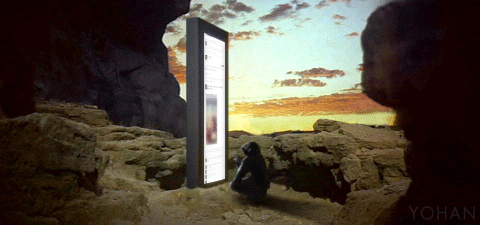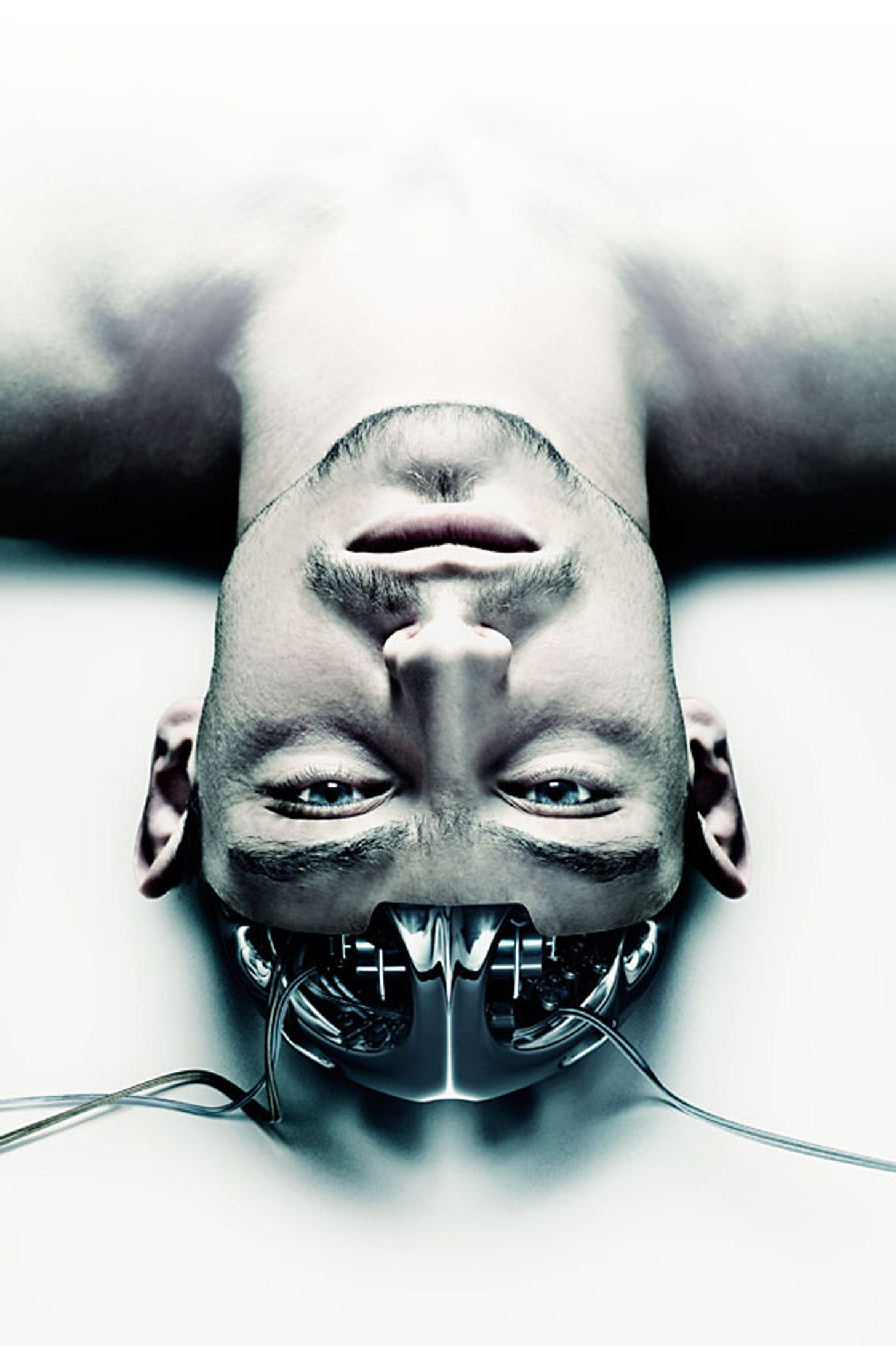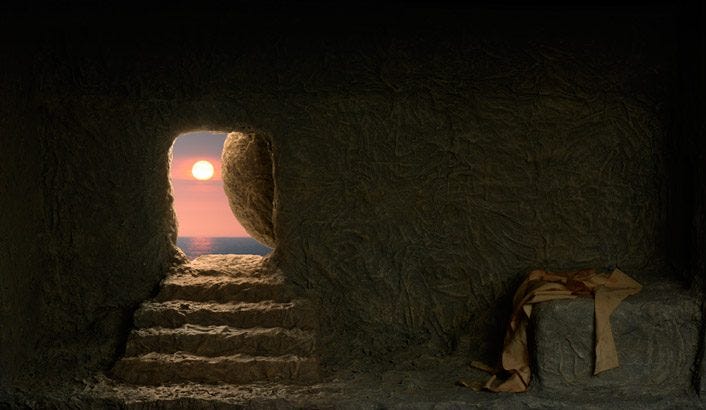Birth of Superhuman-- Death of Man
Regardless of one's religious views, or lack thereof, this essay (and the one preceding it) is worth reading.
Birth of Superhuman-- Death of Man
We cannot stop "progress" and that progress is not transhumanism, it is posthumanism.
I am following up from my last essay To Live Forever with this short piece.
We cannot fight against what we don’t understand. I firmly believe that what I am writing about here is more critical than just about anything else that I have written thus far. It is the crux of the matter. If we can grasp the overarching motivation of the posthumanists (forget transhumanists), then everything that once appeared senseless, like destroying a company’s profits, the war in Ukraine, or even bringing about the downfall of western civilization, becomes clear. So, let’s lay it all out in 12 minutes.
Every day, billionaire VC Masayoshi Son, sits at the feet of AI and pitches ideas to his guru, ChatGPT. They brainstorm together until resolutions are reached—not that satisfy Son, but that satisfy the machine.

“After we repeated this several dozen times, I really felt great because my idea was praised as feasible and wonderful,” Son said. Teams are on standby 24 hours a day to receive his ideas after a ChatGPT brainstorm.
So, who is Son? He is the CEO of SoftBank, a Japanese investment holding company that operates Vision Fund, the world’s largest tech-focused venture capital fund. Admittedly, Son has made some bad investments in the past, but what visionary hasn’t? Son truly believes that his emotional relationship with tech, specifically ChatGPT, which he said has become one of his top advisors, will usher in what he calls “Birth of Superhuman.”
At this year’s shareholders meeting, Son made a presentation that focused mainly on A.I. and its “cosmic significance, complete with visuals illustrating the ‘Birth of Superhuman,’ thanks to A.I. technology”. Son believes that mankind is merely the “human precursor to AI”. Therefore, we should bow to it. Make obeisance and recognize that it is leading us, not the other way around.
It’s the ultimate adventure for the brave explorer. Casting off into the unknown.
It’s progress! And we cannot halt progress. That would mean going backwards or perhaps even worse, stagnating. Our vision of the future means we have no choice but to keep going “forward”.
Miklos Lukacs is a Peruvian academic specializing in philosophy of technology. In his first book, Neo entes: Tecnología y cambio antropológico en el siglo XXI (Neo entities: Technology and anthropological change in the 21st century), he analyses the rise of transhumanism. Here’s what he has to say about it:
It is sold as a material improvement, as an idea of progress in which the human being is improved, replaces God, and becomes God thanks to technology. The problem with this approach is that it is a false and empty promise. The sine qua non condition of this process is that the human being ceases to be human. You will progress, but the cost of that progress is that you cease to be what you are. So, homo sapiens can transition into a homo deus or any kind of form, what I call a neo-entity. Basically, technology is going to allow you to be whatever you want to be and that is one of the promises of progress.
This is not a new idea. It is as old as humanity itself. Yet somehow, no matter how many times it is proved to be false, we keep on desperately thinking that the next big thing, which is now technology and AI, will at last usher in a new age of utopia for us on earth. It’s progress! Progress where? Beyond being human.
And yet, we have progressed nowhere.
Yes, so this idea of progress posits that human beings are imperfect, inferior, and undesirable, and that they need to be improved. It is a profoundly anti-humanist and anti-Christian idea of progress. It is an anti-human idea. The main critic of this idea of progress is John Gray, especially in his work Straw Dogs, where he states that it is absurd to think that technological progress entails moral progress. Gray correctly argues that human beings have not changed, we are essentially the same as we were 2000 years ago.
In scientific experimentations, such as raising synthetic embryos, harvesting stem cells from late-term fetuses, growing human organs in animals, cloning humans and creating superhuman soldiers, “ethical and moral dilemmas” will be added onto most articles that you read about it. The experts wring their hands in despair, virtuously pointing out how there are not enough regulations in place, but they will never do anything about it. It will always be someone else’s problem to solve.
The most terrible thing about it is that these people no doubt sleep easy at night. None of them believe they are doing anything bad. They are not inherently “evil”.
All these people pushing for this transhumanist agenda, from the scientists to the academics to the educators to the government officials, are following the protocol of other experts they admire, who have gone on before them. And those experts are following the protocol of their mentors and on and on it goes.
Lukacs points out that the inspiration behind current ideas goes back to “the Enlightenment thinkers of the 18th century, especially the Marquis de Condorcet and Denis Diderot, who were already playing with this idea of the perpetual perfectibility of the human being. Diderot was already predicting the rise of the ‘superman’ by way of the reconfiguration and redefinition of the human being.”
Darwinism presented us with ‘survival of the fittest,’ the idea that only the strong survive, out of which grew the justification of the experimentation on lower classes and eugenics.
This goes against the Christian foundations, and that of most religions, that we are all created equal and loved by God. That we are spiritual beings that can find salvation, not on this earth in this corporate body, but by giving up earthly attachments. Jesus did not hobnob with the rich and famous. He did not prove his success by building mansions and amassing wealth. He told his followers to leave everything and live humbly, serving others. It was with the poor and needy that Jesus identified. He was loved by the disenfranchised and hated by the elites. By clinging to this world, we only become slaves to it.
These great truths upon which the very essence of who we are as humans must be destroyed in order to usher in the age of the superhuman here on earth. Progress must go on. Sure, some will suffer. But that’s always how it has been.
We can become a new race of beings. So, we are told. With the help of A.I. we can become a new species. What exactly that will be, no one is really talking about. They call it “transhuman” but what they are reaching for is to be “posthuman” because trans is just that, a transition. But, to what?
Renewal Bio wants to copy humans into embryos for organ harvesting.
For the first time, an advanced mouse embryo has been mimicked without sperm, eggs, or even a uterus. Jacob Hanna’s report was published in the journal Cell on Monday. Hanna is a biologist at the Weizmann Institute of Science in Rehovot.
“This experiment has huge implications,” says Bernard Siegel, a patient advocate and founder of the World Stem Cell Summit. “One wonders what mammal could be next in line.”
Hello! Humans.
As reported in MIT Technology Review:
In a next set of experiments, Hanna is using his own blood or skin cells (and those of a few other volunteers) as the starting point for making synthetic human embryos. It means his lab could soon be swimming in hundreds or thousands of tiny mini-mes—all genetic clones of himself.
The next question is do these mini-mes have rights? What are they? At what point do they become “human?” Of course, they are nowhere near human now. So, let’s just keep on experimenting. By the time we have discovered how to grow them into something, that something will no longer be human anyway.
This is why the push to indoctrinate the public to accept transgenderism.
It's now LGBTQIA2+, an acronym for Lesbian, Gay, Bisexual, Transgender, Queer and/or Questioning, Intersex, Asexual, Two-Spirit, and the countless affirmative ways in which people choose to self-identify.
Where does it end?
These variations from human or other species are what I call neo-entities, although my definition is not limited to the physical world and includes digital creations as well. We are already seeing this reconfiguration of the human being, because it is increasingly impossible even to distinguish man from woman. In the name of this technological progress, all categories of human being are emptied of their ontological content. This means that there is not one sexual category, but hundreds of genders, or that there is no difference between adults and children, not only ontologically but also morally with regard to the decisions they can make, and all are included in the term ‘persons.’ Thus, we hear progressive politicians say that sexual diversity is enjoyed by ‘persons’ as long as there is consent.
The prefix ‘trans-’ is not random. Transhumanism, i.e., the transition of the human, derives from pre-transhumanist categories: transsexual or transgender, transracial, trans-race, trans-age, trans-species, trans-capable, etc. You can put anything into the trans category and thus the ontological content of the human being is emptied. You can be anything, this is the redefinition, and you can use technology for change, for reconfiguration. We see it with the presence of trans women in beauty competitions or in women’s sports. It is the redefining and reconfiguring of the human being.
You see, humans are the plague on the planet. And in a sense, this is true. As most people down through history have always instinctively known, it is our fallen nature that causes these problems and the only answer is a spiritual renewal, not a physical one. But they take this truth and twist it. The answer is not in admitting our sin (a terrible word!) and finding salvation in our creator. It is in thinking we can fix ourselves by denying our creator and making ourselves into gods and this world our “utopia'“.
Humans are now being told they are the cause of what falls under the all-consuming umbrella of climate change. And there is only one answer.
…all means to reduce the plague are justified. It is an openly eugenic project, and we know how all these eugenic projects end up in history. The greatest risk is that all human reproduction will be put in the hands of technology, and that would be the end of the human being. It would be the creation of homo deus, but not of the whole population but of the minority that controls, markets, manufactures, regulates, and supervises these technologies. We already have genetic pre-implantation and in vitro fertilization techniques; the UK’s three-parent law already exists; the University of Eindhoven is working on the creation of artificial human wombs; and there are even postpartum artificial intelligence nannies to control the development of babies without human presence. This is not science fiction, it is reality.
“We view the embryo as the best 3D bio printer,” says Hanna. “It’s the best entity to make organs and proper tissue.”
That’s all an embryo is now seen as—a 3D printer. If you think about it, any person who developed from a synthetic embryo would be a clone—a clone of whoever’s cells were used to make the embryo in the first place.
The new god of this world can manufacture any type of creature he wants. He can make himself in his own image. Thanks to the experiments he conducted on lesser creatures—humans like you and me.
Humans can now be viewed as a lower class of species. Where once we were all consumers, buying products to make the elite richer, we are now the product to be used by elites. The heathiest organs can be harvested. The brightest minds can be extracted. New beings can be grown in labs, monitored by AI.
An army can be created. An athletic team. Wars can be fought, and sports can be played for the amusement of the elites. Imagine the gladiators that can be created; the bets that can be made on who will win and who will die.
If you are a god and you want to travel to another planet, would you really take along all those lesser humans with you? No! You would take artificial wombs that would grow the superchildren you wanted to inhabit the new worlds.
The elites anticipate being able to clone themselves. How many should they each be allowed? A beloved child that had died could be reborn. If you had a clone of yourself or your dead child, would it actually be you or that child? As it went along would it develop into something else, with new ideas and desires to go its own way? Would the original cloner take exception to that and demand control?
These are not useless questions. These lab creations could eventually become what scientists call “real human embryos”, but that is not the intention. If and when this monstrous ability is realized, these creations will not be human. They will be something else.
“We need a defined framework, but instead what we see here is a fairly wild race between labs,” one journal editor told me (Antonio Regaldo) during the ISSCR meeting. “The overarching question is: How far do they go, and where do we place them in a legal-moral spectrum? How can we endorse working with these models when they are much further along than we were two years ago?”
Scientists like Hanna don’t worry about such questions. They have contingency plans. If the embryos start developing too far:
…we can genetically engineer the starting cells, so the resulting model embryo never develops a head. Restricting its potential could help avoid ethical dilemmas. “We think this is important and have invested a lot in this,” says Hanna. Genetic changes can be made that lead to “no lungs, no heart, or no brain.”
If the thought of walking through that lab doesn’t give you nightmares, I don’t know what will.
Nightmare or not, there are always ways to circumvent moral questions if there is no longer a moral compass to help navigate through the quagmire. Like VC Masayoshi Son, those in power can discuss it all with AI, absolving themselves of any responsibility for what happens next.
Progress will progress.
But tell me something. If all of this that we once only thought of as science fiction is now a possibility, why do we scoff at the thought of Jesus overcoming death and rising from the grave?
Why does that have to not be true, and these other promises of immortality replace it? I leave this question with my readers and listeners.
Thank you for being here!
Source: Break Free with Karen Hunt



Comments
Post a Comment